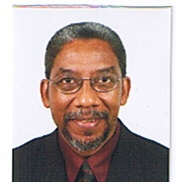 August 1, 1838 – Emancipation Day – End of chattel slavery, Former slaves blocked from becoming independent farmers as colonial authorities pass Territorial Ordinance prohibiting the sale of less than 100 acres of land. Ex-slaves respond by squatting on Crown lands and abandoned estates in Trinidad and many became labourers in the urban areas. In Tobago, the métayage system (a form of sharecropping) emerged as ex-slaves became peasant farmers and later wage labourers. They fought against their oppressive conditions culminating in the Belmanna Riots in 1876. April 22, 1917 – The last ship with Indian indentured labourers arrives in Trinidad. Indentureship was completely abolished on January 1, 1920 by the British colonialists following World War I. Many resistance movements like the Hosay Riots of 1884 and the 1903 Harmony Hall estate strike contributed to the end of indentureship and the movement to ‘free’ wage labour. Doulat Singh, the leader of that strike was banished back to India. 1890’s – formation of first working class organisations – Working Men’s Reform Club, Trinidad Working Men’s Association (TWA), Woodcutters Union and emerged. Other organisations of working people like the Pan African Association, East Indian National Association and later the Ratepayers Association emerged in the urban areas, the latter led battles like the 1903 ‘Water Riots’ in Port of Spain against measures including the planned introduction of water meters. 1908 – Commercial oil production began in Trinidad 51 years after the first oil well was drilled in 1857. Exports of crude oil began in 1910 and the first refinery was built in Point Fortin in 1912. The oil industry expanded during World War I as oil became important fuel for the British war fleet. 1918 – Habitual Idlers Bill introduced. This law provided for any male worker ‘lacking means of subsistence’ could be confined to a government-run agricultural settlement to be taught the ‘habits of industry’. 1919 – First major national strike involving workers from several industries. May – asphalt workers strike for wage increases and reduced working hours. November – dockworkers strike for improved conditions and bargaining rights. The strike spread to other sectors involving the sugar, oil, construction and council workers and workers in Tobago who attacked the government wireless station there. These strikes were influenced by the negative experience of many working people who served in the British military during the World War and by the victory of the Bolshevik Revolution in Russia. 1920 – Responding to the workers’ actions, the colonial authorities introduced a number of repressive measures including passage of the Habitual Idlers Ordinance and the Sedition Ordinance and the Dispute Settlement and Industrial Court Ordinance prohibiting strikes and making arbitration compulsory. Several leaders of the TWA and among the strikers were arrested and jailed and some deported. Some labour reform measures were also introduced like the Truck Ordinance 1919 which required payment of wages in money, the Labour Bureau Ordinance, an attempt to improve recruitment practices. 1921 – the colonial authorities set up the Wood Commission to investigate the social and political climate in this country. One outcome of that Commission was the first ever elections to the Legislative Council in 1925. The TWA had 3 deputies elected to the LegCo in those first elections including Captain A A Cipriani. The TWA championed several issues including abolition of child labour (Ordinance passed in 1925), for legalisation of trade unions, the 8-hour working day and the repeal of the Masters and Servants Ordinance. The TWA became the Trinidad Labour Party (TLP). 1930’s – The economic conditions in this country deteriorated in the years coming into the 1930’s. The sugar and cocoa sectors in agriculture were suffering from loss of markets, collapse of world prices and plant disease problems. The oil industry went into recession in the early 30’s after the boom of the War period and the 20’s when 2 companies were established – United British Oilfields of Trinidad (UBOT), a subsidiary of Shell and Trinidad Leaseholds Limited (TLL). Despite the passage of the Workers’ Compensation Ordinance and the Trade Union Ordinance in 1932, these laws failed to provide protection for all workers and their Rights to picket and strike and conduct their struggles for improvements in their working conditions. As the influence of the TWA and Cipriani declined, new organisations and leaders emerged among the working class to lead its fight. The Negro Welfare Cultural and Social Association (NWCSA) led by Elma François, Jim Barrette and Christina King which organised mainly in urban Port of Spain and had links with the emerging movement led by Tubal Uriah Butler among the oil workers. 1935 - March – Apex Oilfield works strike and marched to Port of Spain led by Butler. October – the NWCSA mounted protests against the Italian invasion of Ethiopia and British conciliation with fascist Mussolini. 1936 – Butler formed the British Empire Workers and Citizens’ Home Rule Party (BEWCHRP). The TLP remained strong in Tobago. 1937 – The oil workers and others continued a series of strikes and hunger marches to protest the oppressive and deteriorating working and social conditions and the growing demand for home rule from the Crown Colony system. On June 19, 1937, the sit-down strike at Forest Reserve Oilfield marked a new phase in the growing anti-colonial struggle. The police attempted to arrest Butler leading to the ‘Charlie King’ incident in Fyzabad which forced Butler to go into hiding. Adrian Cola Rienzi, Butler’s co-organiser took up the leadership. Despite the repressive measures of the colonial government and the police and British military which despatched 2 warships, the Ajax and the Exeter to this country, the strike spread to the other oilfields, to the sugar industry and across both islands over the next week and the rebellion (later labelled the Butler Riots) went on till July 6. The main banner of the 1937 uprising was Let Those Who Labour Hold the Reins! 1938 - In 1938, like the aftermath of the 1919 General Strike, the colonial authorities in England appointed another Commission of Inquiry following the Butler Riots, the Foster Commission made recommendations for establishing the machinery for Collective Bargaining including the creation of a Labour Departments. By the end of 1937, several trade unions were registered and obtained legal status including the Oilfields Workers’ Trade Union (OWTU), All Trinidad Sugar Estates and Factory Workers’ Trade Union (ATSEFWTU), Amalgamated Building and Wood Workers Union (ABWWU), Federated Workers’ Union (FWTU), Public Workers’ Trade Union (PWU) and Seamen and Waterfront Workers’ Trade Union (SWWTU). In 1938-9, several more unions were registered, including, All Trinidad Transport and General Workers’ Trade Union (ATTGWTU), Railway Workers’ Trade Union (RWTU), Printers’ Industrial Trade Union (PITU), Trinidad and Tobago Union of Shop Assistants and Clerks (TTUSAC), Civil Service Association (CSA), Tobago Industrial Union (TIU) and Tailors’ Industrial Union (TIU). The first central labour confederation was established in March 1938 – the Committee of Industrial Organisation which was led by Rienzi. More labour legislation – the Trades Disputes (Arbitration and Inquiry) Ordinance 1938 and the Trade Disputes and Protection of Property Ordinance 1943 – were later passed. The Butler Riots marked the birth of the modern trade union movement in Trinidad and Tobago. The 1937 uprising was anti-colonial in its character and the call for Home Rule was also raised and had also spread into unrest throughout the English colonies in the Caribbean. Another Commission of the colonial power, the Moyne Commission, recommended universal adult suffrage which was introduced after World War II. The Butler Riots, anti-colonial uprising also marked the birth of the Independence movement in Trinidad and Tobago. On July 6, 1937, the Trinidad Guardian newspaper announced: “The strikes are now dead: only their ghosts remained to be buried”. Try as they may, the colonial authorities, the international and local big business owners, the employers and their successors, can never extinguish the spirit of 1937. As much as the inheritors of the colonial structures of power may try that spirit of the anti-colonial uprising is alive and well in the hearts and consciousness of the workers and people of Trinidad and Tobago who will never abandon their struggle to defend and advance their Rights and to decide their own future and that of this society and nation. Nor will those who have abandoned the goals and methods of the leaders of 1937 succeed in extinguishing this spirit. The ghosts will never be buried. The ghosts of 1937 will continue to haunt those who prop up a system of oppression and exploitation of the working people. The strikes are not dead. LET THOSE WHO LABOUR HOLD THE REINS OF POWER, CONSTITUTE THEMSELVES AS SOVEREIGN AND BUILD A SOCIETY THAT GUARANTEES THE RIGHTS OF ALL! Clyde Weatherhead A Conscious Worker Continuing to Fight in the Spirit of June 19, 1937. 19 June 2021 Comments are closed.
|
AuthorI am a appalled at the loss of the simple skills of discussing ideas and sharing Opinions to DEEPEN ANALYSIS and UNDERSTAND DEVELOPMENTS to ARRIVE AT SOLUTIONS. Archives
April 2024
Categories |

About Clyde Weatherhead
Clyde has been involved in public life as a political activist, a trade unionist, Lawyer, Teacher and Author |
Connect With Clyde
Write to Clyde on Facebook Visit Clyde's Author Page on Amazon Go To Discussion on Facebook For Employment Relations Issues |

 RSS Feed
RSS Feed